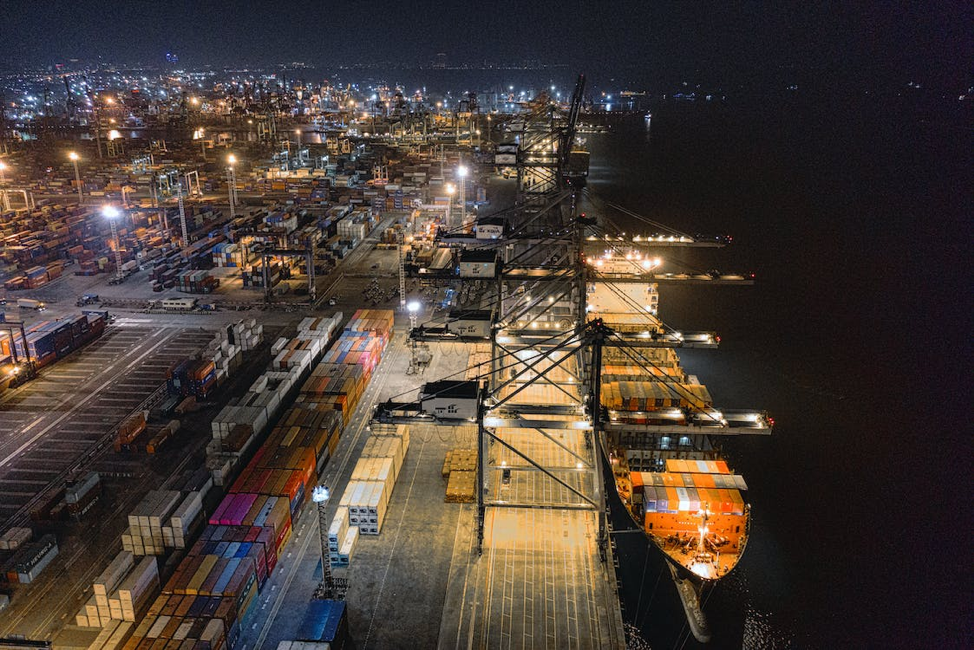The rise in environmental awareness and social responsibility has redefined the concept of sustainability. Today, this extends beyond just renewable energy sectors and waste management companies. One often-overlooked arena with immense potential for eco-friendly transformation is port operations.
These ports are vital cogs in the global trade machinery. Unfortunately, they can also be hotspots for resource degradation and carbon emissions due to outdated and inefficient practices. However, as evidence is increasingly showing, embracing sustainable port impact is not merely good for the planet but can also significantly enhance business profitability. Here’s how.
The Environmental Toll of Traditional Port Operations
Before exploring the promising landscape of environmentally viable port practices, we need to grasp the gravity of the damage caused by traditional port operations. Ports have become notorious for their substantial carbon emissions due to heavy fuel consumption by ships and port-side equipment. The emissions not only contribute to air pollution but also cast a greenhouse effect, exacerbating climate change.
Additionally, water quality often suffers from oil spills and waste discharge, posing a threat to marine ecosystems. Noise and light pollution are other byproducts that disturb local communities and wildlife. These “sins” against Mother Nature can result in costly regulatory fines and damage a port’s public image. Additionally, they can potentially discourage partnerships and business investments.
The Advantages of Sustainable Harbor Operations for Businesses
Here are some of the pros for companies that invest in sustainable port practices:
Regulatory Benefits
As governments globally ratchet up environmental laws, the standards for emissions, waste management, and water quality are becoming stricter. But there’s some good news on the horizon; Ports taking a proactive stance on green measures not only steer clear of regulatory penalties but may also qualify for governmental incentives or grants.
These rewards can offset some of the costs of implementing eco-friendly technologies. Moreover, a strong track record in sustainability can enhance a port’s reputation, leading to preferential treatment in public tenders and partnerships. This creates a business environment where compliance becomes a competitive advantage.
Cost Savings Through Efficiency
Efficiency is key to both environmental responsibility and cost savings. Upgrading to energy-efficient machinery can drastically cut energy bills, making the investment pay off quickly. Smart logistics, powered by AI algorithms, can further reduce operational costs by optimizing fuel consumption and decreasing machine wear.
Moreover, innovative waste management strategies, such as waste-to-energy conversion, offer dual benefits: they cut down on landfill fees and turn waste into new revenue streams.
Customer and Stakeholder Appeal
Modern consumers are increasingly drawn to businesses that prioritize sustainability. Environmentally friendly port operations can be a unique selling point that attracts clients who want to reduce their own carbon footprints. With an enhanced reputation, ports can enjoy stronger stakeholder relationships and increased community support. This can be vital during expansion projects or when regulatory approvals are required.
Case Studies: Ports Making a Difference
If you’re skeptical about the viability of green ports, consider these compelling examples of successful sustainability initiatives in harbor operations.
Rotterdam Port, The Netherlands
Known as the ‘Gateway to Europe,’ Rotterdam Port is one of the busiest in the world. Yet, it is a beacon of environmental accountability. The port utilizes wind turbines and solar panels to generate electricity. Its innovative initiatives have decreased its carbon footprint and also attracted companies that value sustainability, ultimately increasing the port’s profitability.
Los Angeles Port, USA
The Port of Los Angeles has invested heavily in green technologies, including electric vehicles and equipment. The result has been a remarkable reduction in pollution and operational costs. Their Green Port Policy, focused on eco-sensitive practices, has made them an industry leader and an attractive option for responsible businesses.
Future Outlook and Investment in Technology
As we look to the future, technology stands as a powerful ally in making port operations more sustainable and efficient. From Artificial Intelligence to Internet of Things, here’s how these emerging technologies can transform ports into conservation-minded yet profitable hubs:
Artificial Intelligence
(AI) will be crucial in revolutionizing logistics, enabling ports to adopt optimized routing. This can lead to lower fuel consumption and emissions.
Machine Learning Algorithms
These can further help predict equipment maintenance needs, reducing unexpected downtime leading to resource conservation.
Blockchain Technology
This emerging tool offers enhanced traceability. It can securely track the journey of sustainably sourced goods and verify eco-friendly practices across the supply chain.
Internet of Things (IoT)
IoT sensors can monitor real-time metrics, helping to dynamically adjust operations for the lowest carbon footprint.
Companies willing to invest in these technologies today are poised to experience substantial gains on their investment in terms of financial profitability and environmental impact reduction.
A Holistic Approach: People, Planet, Profit
The concept of the Triple Bottom Line—people, planet, profit—is particularly relevant when discussing sustainable port operations. Adopting this comprehensive approach ensures resource preservation, societal well-being, and, crucially for businesses, long-term profitability. It’s a win-win-win situation.
The Bottom Line
Sustainable port operations are far from a niche concern. They are rapidly becoming a mainstream consideration for any company involved in international trade. With tangible benefits ranging from cost savings and regulatory advantages to consumer appeal, it’s clear that sustainability is more than just a buzzword; it’s a strategic imperative. Ports that understand this are well-positioned for a future where environmental stewardship and smart business align.

